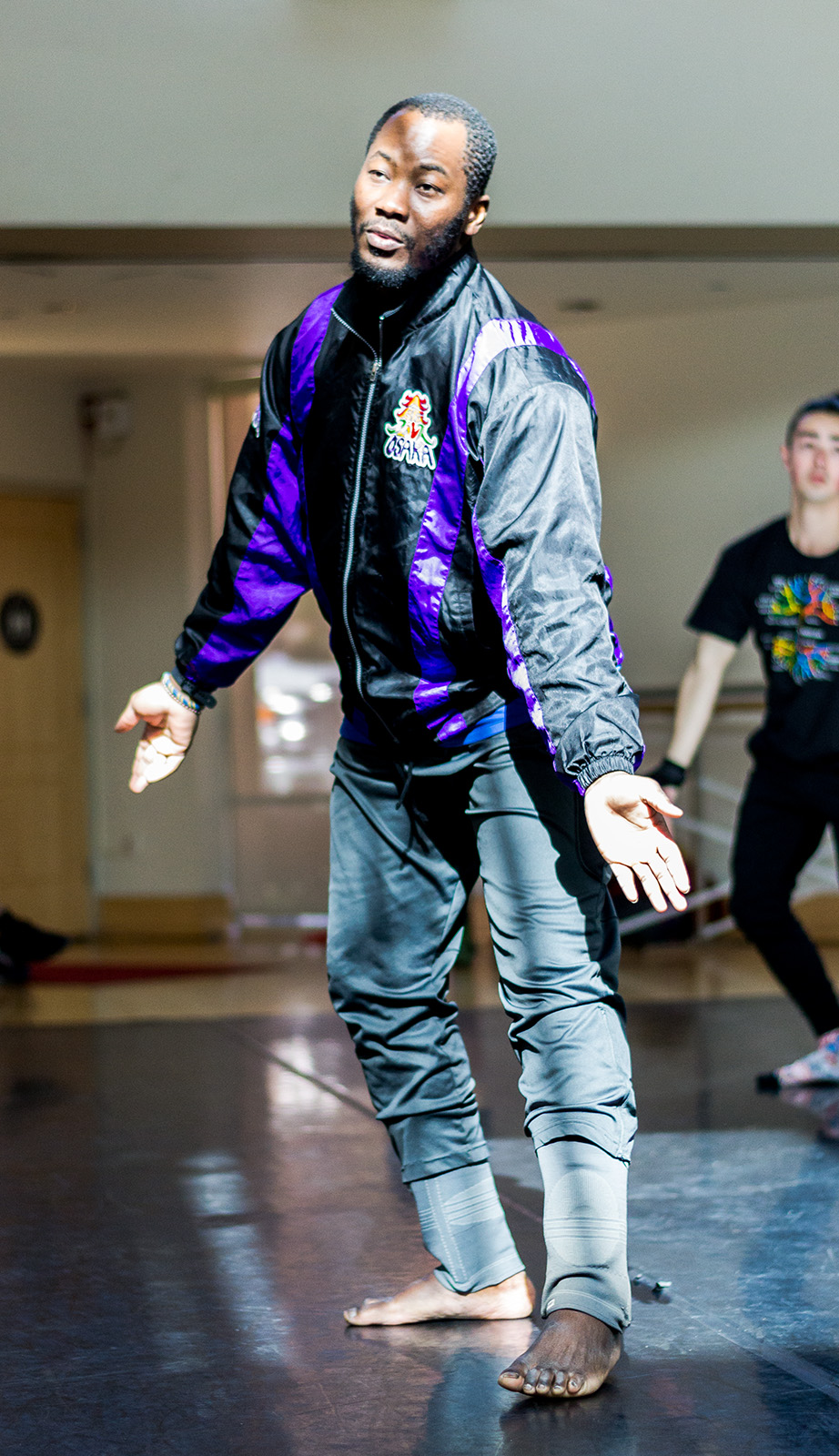West African festival aims to bring culture to LA through music and dance

UCLA dance professor Willy Souly grew up in Burkina Faso where he attended many Djanjobas, cultural gatherings that involve dance circles and storytelling set to music. (Bilal Ismail Ahmed/Daily Bruin senior staff)
By Kaia Sherry
Feb. 21, 2018 11:07 p.m.
Willy Souly’s first Djanjoba dance circle in Burkina Faso did not involve a lot of dancing.
“Everyone was expecting me to move and, growing up shy, I froze for almost an entire minute,” Souly said. “I couldn’t move, so someone had to pick me up and take me out.”
But now, the UCLA dance professor is bringing the West African festival to Southern California for the first time ever. Souly’s Djanjoba will take place at four locations throughout Los Angeles from Friday through Sunday, and will also include drumming and dance classes. He said Djanjoba is an opportunity to bring Los Angeles’ diverse cultural community together and help different cultural groups learn about West African culture.
“Many of the issues that we have … stem from the fact that we don’t sit together all at the same time and talk about our differences and similarities,” Souly said.
Djanjoba is a cultural gathering typically held in the countries that composed the Mande Empire, which stretched across modern-day West Africa, Souly said. Communities have held Djanjobas since the 19th or 20th century to honor people or special events. Last year, Burkina Faso held a countrywide Djanjoba to honor Women’s Day and the preservation of women’s rights, said Anna Scott, the event’s producer.
Souly said he attended many Djanjobas while growing up in Burkina Faso. In West Africa, the festivals often begin with the musicians sitting together playing their respective instruments, such as drums, guitars or xylophones – similar to old-school, open-air American blues events held in the woods.
One of the centerpieces of the West African Djanjoba is the djeli – a storyteller who preserves the oral history of the local people. After appearing at the Djanjoba, the djeli begins singing traditional tunes and leads a circle of participants in songs and telling stories. Souly said drummer Aboubacar Kouyate will serve as the djeli for the upcoming Djanjoba in Los Angeles and will perform with the event’s other musicians as the master drummer.
Souly said recreating a Djanjoba in Southern California involves much more preparation, since they are uncommon in America. In West Africa, Djanjoba planners simply contact a djeli, who brings musicians with him.
In the upcoming Djanjoba, Nzingha Camara, an instructor of traditional dance at the event, will give a blessing and libation before the activities begin, which accompany certain types of Djanjobas and honor the ancestors of everyone present. Friday will mark the beginning of the celebration with a discussion about cultural differences, facilitating conversation about embracing different backgrounds within the community.
“One mistake that people often make is to generalize this type of dance as West African,” Souly said. “If you go to West Africa, you will have countries like Ghana, Benin and Togo, which perform different dances and employ different instruments.”
The types of dances that will be taught also vary widely and come from a range of countries, including Senegal and Guinea. Souly said most of the dance workshops will teach large, extended movements that involve the whole body, and the drumming workshops will teach students how to play specifically for a dancer by marking their steps with the drumbeat.
Camara said she hopes the art forms introduced at the festival will help keep traditions alive, preserve values and remind the black community of their roots and origins.
“It’s important to have events like this in every place where black people live,” Camara said. “A cultural and spiritual foundation is just as important as an economic one.”

